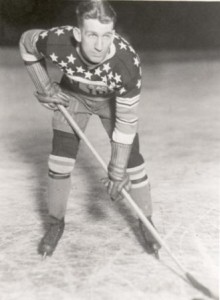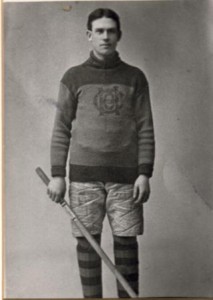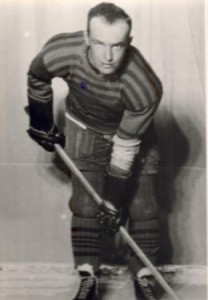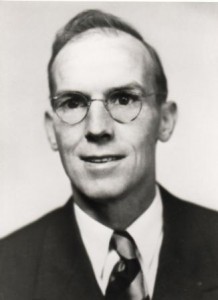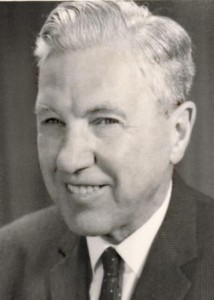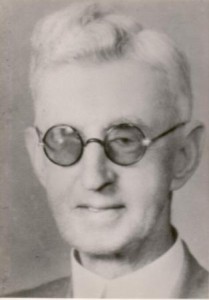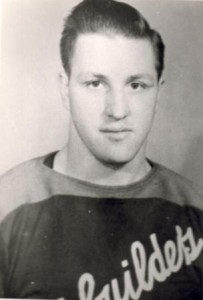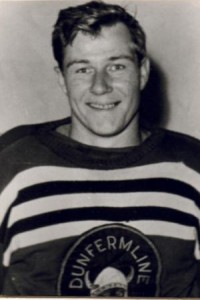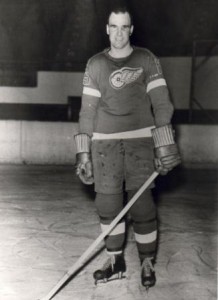 Eddie bush is Collingwood’s most famous hockey export over the past thirty five years
Eddie bush is Collingwood’s most famous hockey export over the past thirty five years
and certainly the most colourful.
Eddie makes the Collingwood Hall of Fame on three counts-as a player, a coach and a
builder.
This brash, flamboyant, swashbuckling competitor came a long way since he made the Collingwood Junior as a kid from the other side of the east end track back in
the hungry thirties.
Bush was a winner right from the start. He hated to lose and he expressed nothing but contempt for anybody who took defeat too lightly.
He qualifies as a builder because it was Bush who revived hockey in Collingwood after it had sunk into the doldrums for more than a decade.
He put this town back on the hockey map in 1951 when he closed off his active pro career to give Collingwood three consecutive Junior “C” provincial titles and a pair of back to back Intermediate “A” championships missing a third one after a great series with the Simcoe Gunners. What a work horse he proved to be in those golden years of Collingwood hockey in 1951-52-53. Coaching the juniors, acting as player-coach with the Shipbuilders and still finding time to impact his great hockey skill and experience to the minor hockey teams from Pee Wee to Juvenile.
He turned professional with Detroit in 1938 and the sporting public knew all about it the first day he arrived in Detroit. Jack Adams was not too shocked with the flamboyance of his introduction because he had been exposed to the Collingwood elements years before with Reg Noble, Sailor Jim Herberts and Bern Brophy.
At any rate he sent Eddie to Pittsburgh and Kansas City for seasoning but he was back in the big time in 1941-42. The big fellow had his best season in 1943 and you will find his name in Stanley Cup records.
In the third game of the Stanley Cup finals the Wings beat the Leafs 5-2 and Eddie helped himself to a goal and four assists. That single game scoring record for a defenseman still stands. Bush looked to be on his way to a brilliant N.H.L. career, but, as in the case of Portland, fate stepped in. Eddie joined the R.C.A.F. and when the war ended thee years later, it was just too late.
His playing career, however, lasted almost ten years more with Cleveland, St. Louis, Philadelphia, Cincinnati, Sherbrooke and finally back in his old home town.
But he continued in the game that has always been his life as a very successful coach at Collingwood, Guelph, Hamilton, Pittsburgh, Memphis, Quebec, Richmond and the Kitchener Rangers. He got back in the N.H.L. as a coach for part of the season with the Kansas City Scouts in 1976.
He was a good football player, better than average ball player and expert at darts and is still pretty nifty with a dollar.
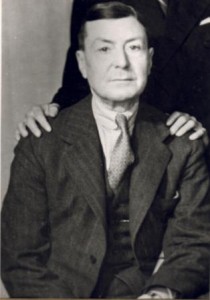 Norman Rule qualifies for Collingwood’s Sports Hall of Fame as a competitor and a builder.
Norman Rule qualifies for Collingwood’s Sports Hall of Fame as a competitor and a builder.
